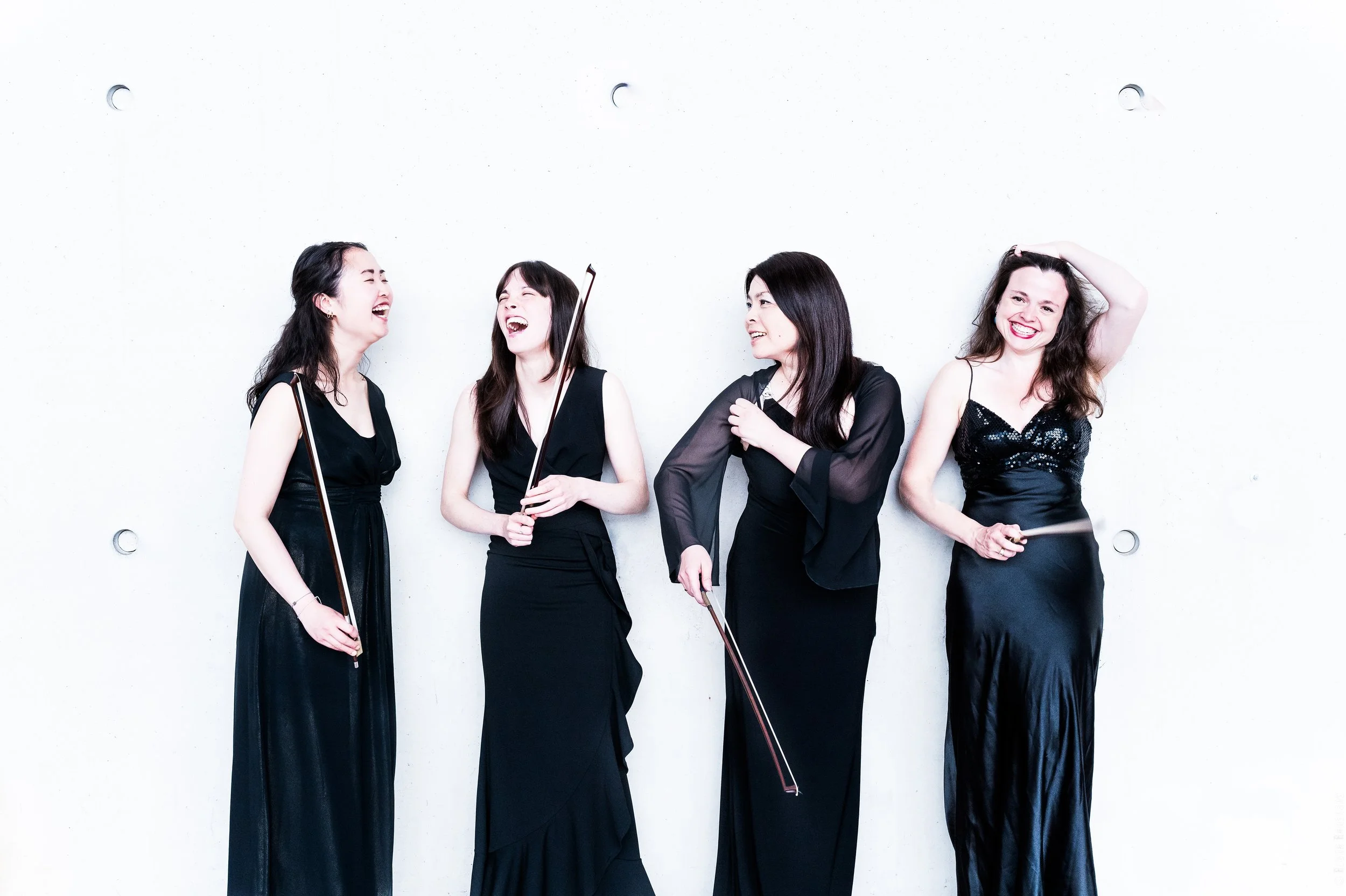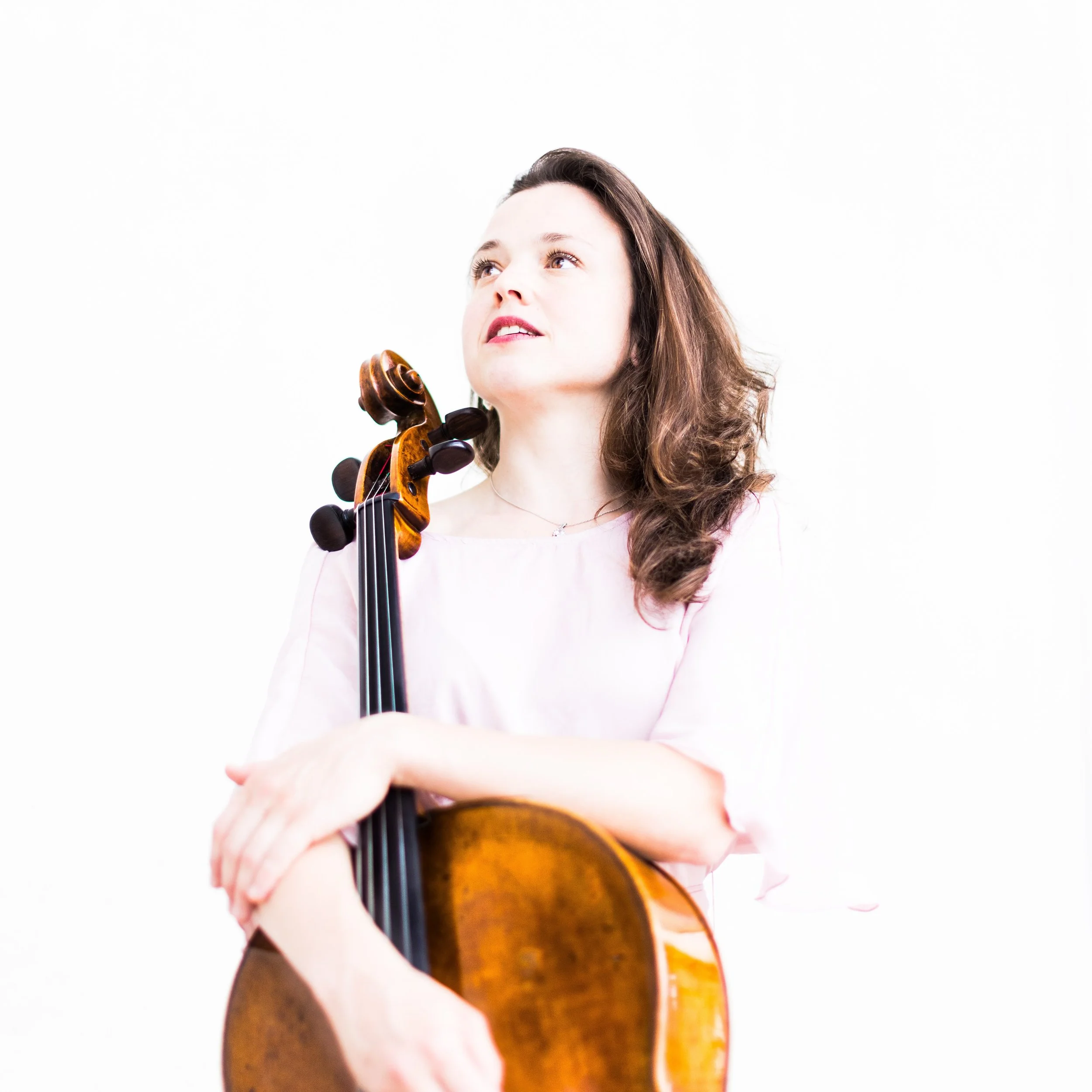
“As their mysterious and thrilling opening lines resonated, the four musicians became miraculously intertwined and their dialog began. Instant emotion. Captivating.”
The GoYa Quartet, formed in 2014, is composed of Sylvia Huang, Hani Song, Saeko Oguma, and Honorine Schaeffer. Hailing from Belgium, Switzerland/South Korea, Japan, and France, this cosmopolitan ensemble brings together a unique blend of cultures, with its base in Amsterdam.
The musicians initially crossed paths in the Royal Concertgebouw Orchestra, where Hani, Saeko, and Honorine are still currently playing. In 2022, Sylvia Huang became Concertmaster of the opera orchestra La Monnaie in Brussels. Their orchestral experience deepens their quartet performances and fuels their pursuit of a rich, dynamic sound.
They have been invited to perform in some of the most prestigious venues in the Europe, including the Concertgebouw in Amsterdam, TivoliVredenburg in Utrecht, Muziekgebouw aan 't IJ, Theater aan het Vrijthof in Maastricht, Flagey in Brussels, Palais des Beaux-Arts in Charleroi, the Brussels Royal Conservatory, and the Philharmonie in Essen. They have also been featured at renowned festivals such as the Quartz International String Quartet Festival, Société Royale Midi Liège, the Festival Proquartetto in Belgium, Festival de Quatuor à Cordes en Pays de Fayence...
The quartet has collaborated with celebrated musicians, including the Danel Quartet, Olivier Patey, Calogero Palermo, Simon van Holen, and Emily Beynon.
Their versatile repertoire spans the classical elegance of Haydn and Schubert to the expressive modernity of Britten and Bartók. In November 2024, they released their debut CD, Autumn Leaves, with the Dutch label Gutman Records. The album has already garnered widespread acclaim from the Dutch press, earning 5 stars and a "Cum Laude" rating from Luister. Lex Bohlmeijer described it as "entrancing... it is of unbearable beauty; likely one of the most beautiful albums of the year."
“They achieved pure physical exhilaration throughout from holding lines firmly and seamlessly [...] with total musical engagement and balanced so that you could hear every note in every part without losing any sense of the whole.”



